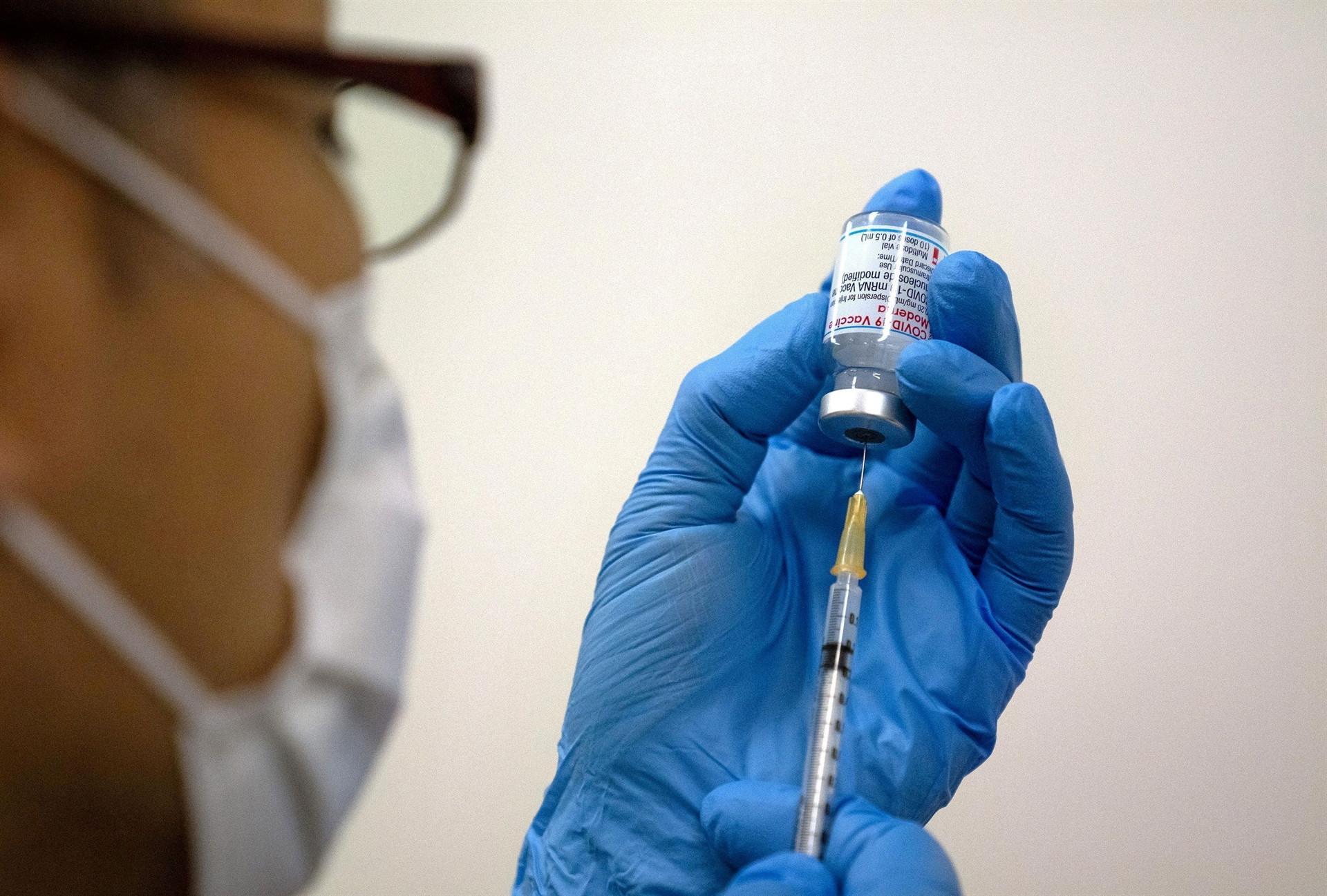
Japan's Kanagawa prefecture said it has found another vial of Moderna Inc's COVID-19 vaccine suspected of containing a foreign substance and has put the rest of the lot on hold.
In a statement on Aug. 31, prefectural authorities said a pharmacist found several black particles in one vial upon checking for foreign substances before the vaccine's use.
Japan suspended the use of 1.63 million doses of Moderna shots last week after being notified of contamination in some of the supply.
Moderna and Spanish pharma company Rovi, which bottles Moderna vaccines, have said the cause could be a manufacturing issue, and European safety regulators have launched an investigation.
Moderna has said no safety or efficacy issues had been identified from the issue.
Kanagawa prefecture said the vaccine's domestic distributor, Takeda Pharmaceutical Co Ltd, had collected the vial with the suspected contaminant, and that about 3,790 people had already received shots from the same lot.
More Moderna shots were temporarily halted in two regions of Japan this week for what appears to be a separate issue of bits of the vials' rubber stopper breaking off when needles are incorrectly inserted.
'Myocarditis risk higher for COVID than for vaccines'
COVID-19 increases the risk of developing myocarditis (heart inflammation) by a factor of 16, providing a strong argument in favor of vaccination, a new U.S. study showed on Aug. 31.
Myocarditis and an associated risk, pericarditis (inflammation around the heart) have previously been linked to the Pfizer and Moderna COVID-19 vaccines themselves, particularly among adolescent boys and young men.
But the risk is far higher after infection with COVID-19, according to the new paper by the Centers for Disease Control and Prevention (CDC).
The study analyzed hospital records from 1.5 million patients with COVID and 35 million without, to see what percentage had myocarditis, and stratified them by age and sex.
"Overall, myocarditis was uncommon among persons with and without COVID-19; however, COVID-19 was significantly associated with an increased risk for myocarditis, with risk varying by age group," the authors wrote.
The increased risk among COVID-19 patients was most pronounced in under-16s, who saw a 37-fold increased risk of myocarditis compared to people of that age group who did not have the coronavirus.
This was followed by over-75s, 65 to 74-year-olds, and 50 to 64-year-olds.
The precise underlying cause isn't understood but it might be related to viral infection of the heart, the study said - or, in under 16s, it could be related to multisystem inflammatory syndrome.
The CDC study pointed to a paper by Israeli researchers published last week in the New England Journal of Medicine that found that messenger RNA vaccines increased the risk of myocarditis three-fold.
That paper showed COVID increased the chances of developing myocarditis 18-fold, roughly in line with the new CDC study.
The CDC in June concluded that the benefits of COVID-19 vaccination outweigh the risks of vaccine-caused myocarditis, even in the most at risk group.
The new study's authors wrote that the new data backed up that claim.
The benefits of vaccination increase when community transmission of COVID is high and the chances of contracting the disease are elevated.
This is currently the case in the United States, which is experiencing its second biggest wave to date thanks to the Delta variant.